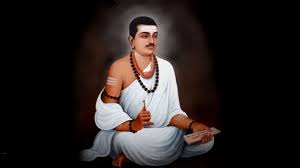
Basava Jayanthi Puja is a sacred celebration dedicated to Jagadguru Basaveshwara, a 12th-century saint, philosopher, and social reformer who laid the foundation of the Lingayat faith in Karnataka. This festival marks the birth anniversary of Basavanna and is observed with great devotion across Karnataka, Maharashtra, Andhra Pradesh, and other parts of South India, usually in April or May.
Basava Jayanthi Puja honors the teachings and life of Basavanna, who advocated for equality, devotion to Lord Shiva (in the form of Ishta Linga), and social justice. The day begins with devotees waking early, taking a holy bath, and wearing clean or traditional attire. Homes and temples are decorated with flowers, mango leaves, and rangoli.
The puja typically begins with Ganapati Puja to invoke the remover of obstacles, followed by Kalasha Sthapana and chanting of Lingashtakam or Basavanna Vachanas—spiritual poems composed by Basavanna and other sharanas that express devotion, wisdom, and moral values.
Devotees perform Ishta Linga Puja, offering water, bilva leaves, flowers, and chanting Om Namah Shivaya. In many communities, a photo or idol of Basavanna is also worshipped with deep reverence. Spiritual discourses, vachana recitations, and community bhajans are held to spread Basavanna’s message of love, unity, and a casteless society.
Annadana (community meal) and prasada distribution are common after the puja. In schools and public gatherings, Basavanna’s contributions are remembered, especially his emphasis on work as worship, individual spiritual experience, and gender and social equality.
Basava Jayanthi Puja is not just a religious observance but a celebration of values that uplift humanity. It inspires people to live with truth, devotion, humility, and service to society.

